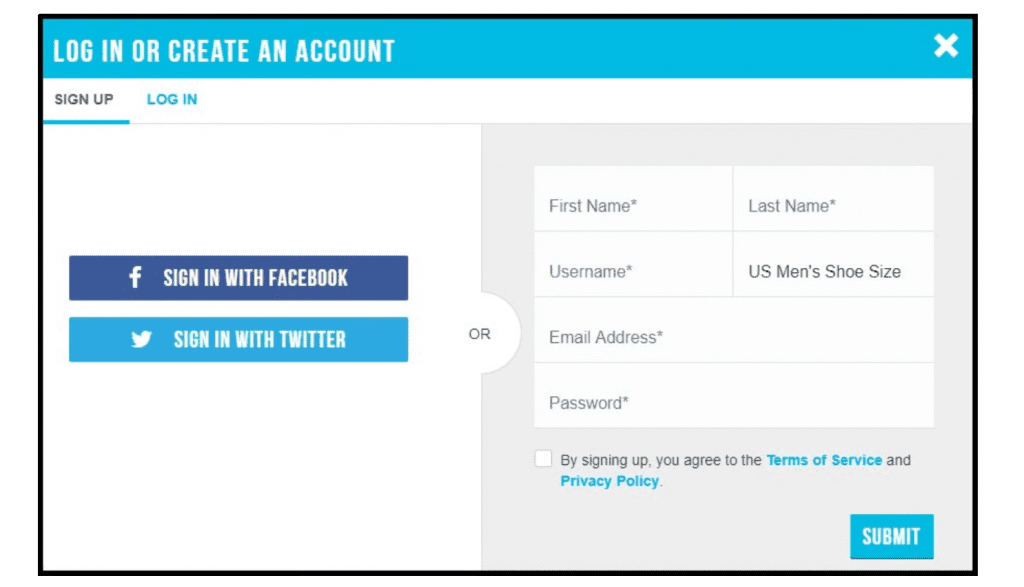A lawsuit targeting StockX over its alleged offering of counterfeit goods is headed to arbitration. In an order dated December 9, Judge Beth Bloom of the U.S. District Court for the Southern District of Florida granted the motion to compel individual arbitration and dismiss litigation that StockX filed in response to the Florida Deceptive and Unfair Trade Practices Act, breach of warranty, and consumer fraud case that Heriberto Valiente waged against it this summer, in which he accused Detroit-based StockX of falsely “warrant[ing] that the items bought and sold on [its resale] platform were 100% authentic without any counterfeits,” and “inflating” the price of its offerings in the process.
A bit of background: In the complaint that he filed with a federal court in Miami in August, Valiente argued that while he “believed and expected that the products bought and sold on the [StockX] platform were 100% authentic … credible reports indicate that a significant percentage of the items sold through StockX are not ‘100% Verified Authentic,’ but counterfeit.” In addition to its “sale of allegedly non-authentic items” (which StockX denied in response to Nike’s amended complaint), Valiente took issue with StockX’s Vault NFTs – non-fungible tokens that are “linked to corresponding physical pairs of collectible sneakers held in its facilities,” claiming that, among other things, StockX led “consumers purchasing the Vault NFTs [to] believe incorrectly that it is partnering with global sneaker brands, such as Nike and Adidas for NFTs relating to their sneakers.”
More than merely “inflating the prices” of offerings on the StockX site, Valiente argued that “the fees charged by [StockX] were higher than they would have been” – and StockX “sold more of the products and at higher prices than it would have” – had consumers known “that a significant number and/or percentage of items on its site were not 100% authentic.” Not only are StockX’s products “sold for a price premium compared to other similar products,” Valiente claimed in his complaint that its prices are “higher than they would otherwise be sold for, absent the misleading representations and omissions prices than about the platform’s ability to independently verify the items it sold and the value of the NFTs.” As a result, he asserted that StockX generated “additional profits at the expense of consumers.”
Valiente’s complaint followed closely from the amended complaint that Nike lodged in its own case against StockX, in which it claims that StockX has offered up counterfeit sneakers in connection with its Vault NFT venture.
In response to the complaint, StockX urged to court to compel the parties to arbitration and dismiss the case on the basis that Valiente agreed to the StockX Terms of Service (“Terms”) when he created a Stock X account, which “includes an arbitration provision directing the parties to resolve any and all disputes exclusively through arbitration.” StockX further asserted that Valiente “acknowledged his agreement to the Terms each time he logged into his account,” making arbitration to appropriate forum for handling the parties’ dispute.
Despite Valiente claiming that the arbitration provision is not valid because the agreement constitutes “an improper browsewrap agreement,” among other things, the court sided with StockX. Reflecting on whether there is a valid arbitration agreement at play, the court first considered whether the clickwrap agreement that Valiente signed off on when he created a StockX account was sufficient to put him on notice of the arbitration provision,” and thus, create a valid agreement. (Under Florida law, when presented with a motion to compel arbitration, a court must consider three factors: “(1) whether a valid agreement to arbitrate exists; (2) whether an arbitrable issue exists; and (3) whether the right to arbitrate was waived.”)

Judge Bloom determined that StockX required Valiente to click a box on its site acknowledging that he read the terms and conditions prior to creating his account, which constitutes “a valid and enforceable clickwrap agreement containing the terms and arbitration provision.”
Further siding with StockX, the court shot down Valiente’s characterization of the arbitration provision as unconscionable. According to the court, StockX provides users with an option to opt-out of the arbitration agreement, which Valiente did not take advantage of. Valiente also argued that the arbitration agreement is unconscionable on the basis that it is presented in “minimized print” and that he “did not have the ability to understand the terms because he never viewed them.”
The court was unpersuaded by these assertions, stating that the provision was “not minimized or hidden so as to make it procedurally unconscionable,” and given that Valiente was required to click a box affirming that he agreed to the terms in order to create a StockX account, he “cannot now argue that he never read the terms and therefore, did not have the ability to understand them.” As for the issue of arbitrability, the court note that that is “expressly delegated to the arbitrator” in StockX’s terms, and thus, the court declined to retain jurisdiction to determine the question of arbitrability.
Finally, in agreeing compel arbitration – and dismiss Valiente’s claims against StockX (without prejudice) in the process, the court stated that because Valiente’s claims are subject to arbitration, the court finds that dismissal of this action is appropriate.
The Nike v. StockX suit is still underway, and interestingly enough, StockX opted to revise the language that it uses in connection with its authentication efforts in November, dropping “100% Authentic” claims in favor of a new “StockX Verified” label. Shedding some light on the new language, the company said last month, “StockX Verified is our own designation and not endorsed by any brands sold on StockX.” (The resale platform also assured consumers that nothing in the actual authentication/verification process is different.)
The case is Valiente v. StockX, Inc., 1:22-cv-21489 (S.D. Fla.)











